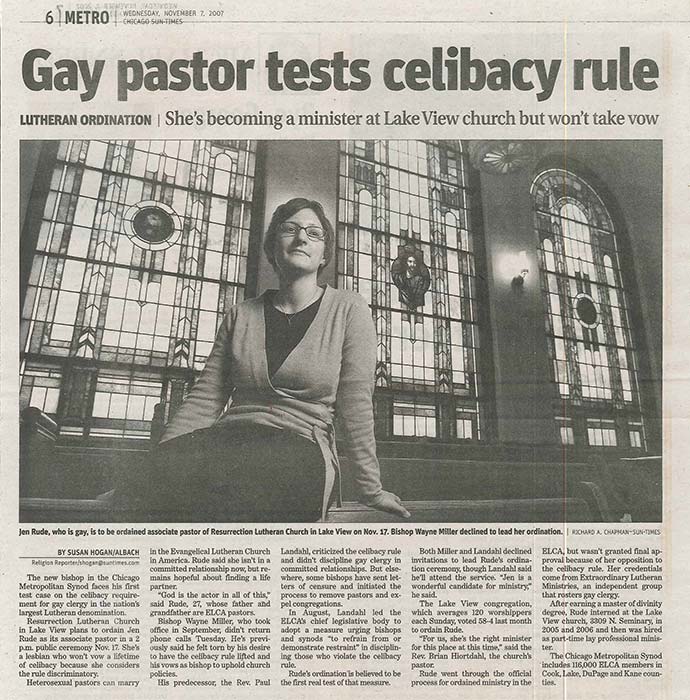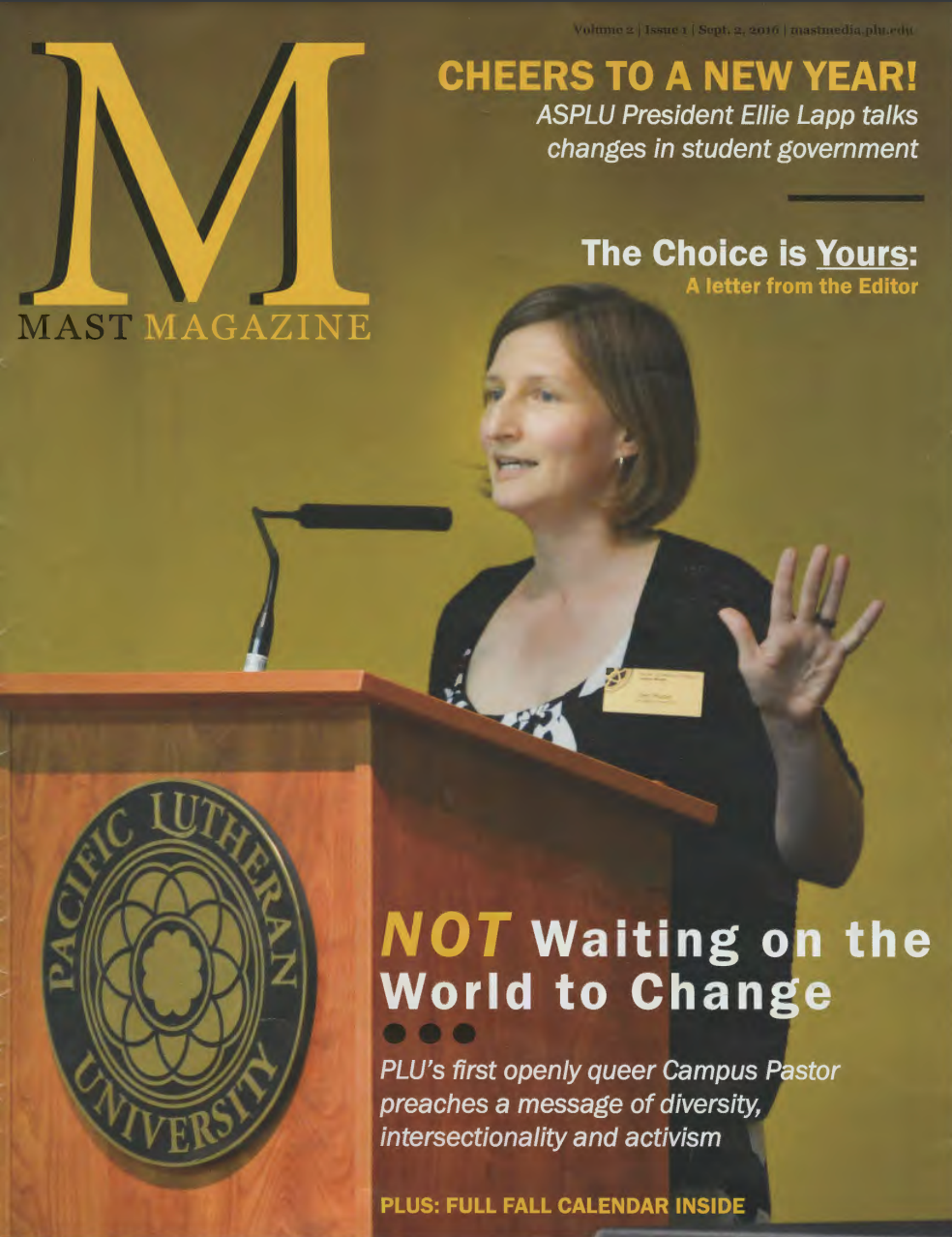How do you pay tribute to those who came before you?
Jen Rude (full oral history interview here)
Almost 25 years after Beth and Tom came out to PLU’s campus community, Jen Rude became the first queer-identified pastor at an ELCA-affiliated university… PLU. Over her own life, Pastor Jen has witnessed the ways that the Lutheran church has evolved on its views towards queer people and has herself participated in activism to move the ELCA towards greater acceptance and celebration of LGBTQ people.
Having grown up in the Lutheran church, Pastor Jen was “steeped in our theology, which is all about grace and unconditional love and justice.” Her father and other family members are pastors, and she was a leader in her church group. She jokes that “it’s the Lutheran Church’s fault that I… adopted these and believed these values, these commitments.”
Since queer people could not be ordained in the ELCA until 2009, as a young person at Augustana University in Sioux Falls studying religion, Pastor Jen did not anticipate being able to pursue ministry. She went on to Pacific School of Religion for their Master of Divinity program, where she began connecting with out queer pastors who shared her frustration with the ELCA rules against ordaining openly (non-celibate) queer people—she calls the group who shared that frustration “rogue Lutherans,” and they formed a group known as Extraordinary Lutheran Ministries.
She explained to me that ELM was bringing together people “who felt called the ministry” to have that call “affirmed in communities… [following] a process that was not regulated by the official ELCA at the time.”
We’re not going to wait until the ELCA changes policies…
we’re going to live as if the future has already come.
In November, 2007, Pastor Jen took part in an ordination ceremony in Chicago, surrounded by a community of people all across the country, in defiance of the ELCA regulations which required queer pastors to be celibate in order to be officially ordained. For her, this action was in line with the theological teachings and history of the Lutheran church: she reminded me that “the Lutheran tradition is part of the Reformation, right?” In 2009, the ELCA changed its policies, just a few short years after Pastor Jen and her fellow “rogue Lutherans” chose to “live as if the future has already come.”
Pastor Jen remembers receiving a text from her father suggesting that she should apply for the university pastor opening at Pacific Lutheran University in 2015. At the time, she was pretty well settled in Chicago with her partner, Deb, and not looking for employment in the PNW (that was a part of their five-year plan, but this was “only two months in,” she joked with me).
After she initially disregarded the possibility of relocating, the job listing kept calling to her. She reread it over and over, feeling that “there was something stirring.” At Deb’s urging, she took the leap and applied, resolving to be as transparent as possible during the interview process–on all fronts–to test if PLU would be the right fit.
Pastor Jen recalls that she went into the interview thinking “I’m just gonna be me, and then I had a sense that PLU really was honest with me too, about who this community was, what it was longing for. And so I felt a lot of energy and synergy about our values.”
Her arrival on campus caused a splash. Publications like The Mast and Resolute profiled Pastor Jen and shared the PLU community’s excitement about her commitment to social justice and openness about being queer. She experienced a “pretty steady influx of people who were like, ‘I’ve never met a queer pastor, and I really need that’” and continues to speak regularly with campus community members about sexuality and spirituality. She intentionally integrates queer affirmation and advocacy into everything that campus ministry sets out to do, and she is also deeply invested in antiracism—Pastor Jen brings her experiences and memories of being on the margins of the ELCA to her advocacy for all marginalized people.
Over her lifetime, Pastor Jen has observed the trend towards “inclusion and acceptance, but really affirmation and celebration” within the Lutheran community, and she underscored how this is a “deeply spiritual process,” bound up with tradition and mutuality.
I asked Pastor Jen where she sees herself fitting into the queer history of PLU (lofty question, I know), and she understands her role in PLU’s history as one that is building on the people who came before her but also demands an obligation to those who come next:




